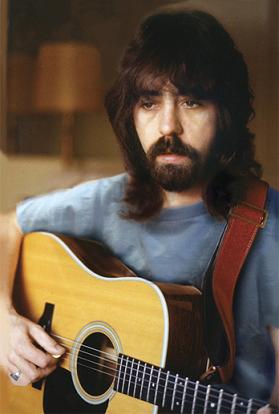Clarence White was a bluegrass guitarist born on June 7, 1944 in Maine.
Clarence White was the guitarist for ‘Nashville West’ ‘The Byrds’, ‘Muleskinner’ and the ‘Kentucky Colonels’ bands. Clarence was known for his flat picking.
Clarence White and his family moved from Madawaska, Maine to Burbank, California in 1954 and formed a band called ‘Three Little Country Boys’. They gave regular program on a local radio and got the attention of ‘Joe Maphis’ an American Country Music Guitarist. The ‘Three Little Country Boys’ band cut their first single in 1958 and had become well known to land appearances on the ‘Andy Griffith Show’ an American Television Series. The ‘Three Little Country Boys’ became ‘Kentucky Colonels’ in the late 1962.

Though Colonels were successful playing bluegrass, the band was still struggling to make a living. The folk era was devastated by the British Invasion in 1964. However, the release of "Subterranean Homesick Blues" by Bob Dylan and "Mr. Tambourine Man" by the ‘Byrds’ a year later kept folk alive. The band attempted to experiment electric instrumentation and this made unresponsiveness from rock audiences. Kentucky Colonels final show was on Hallowen Night and the band dissolved after this show by October 1965.
Clarence White joined as a session guitarist in Los Angels and played on early records of The Monkees. White performed at nights in the ‘Nashville West’ group with future Byrd Gene Parsons. The band was one of the best to play a flawless blend of country music and rock in modern pop music along with ‘International Submarine Band’ (ISB) and the ‘Flying Burrito Brothers’ (early country rock band). Clarence White’s involvement with the ‘Byrds’ began in intense in 1966. Clarence White and Gene Parsons joined the Byrd band after his contribution of his distinctive playing to former member Gene Clark’s solo album ‘Gene Clark’ with the Goadin Brothers.
Clarence White contributed twangy lead guitar to two of his songs ‘Time Between’ and ‘The Girl With No Name’ from the album ‘Younger Then Yesterday’ with the association of Byrds bassist Chris Hillman during the Clark’s session. He was invited for the album ‘The Notorious Byrd Brothers’ to record a lead guitar solo for ‘Change is Now’. The Byrds sixth album ‘Sweetheart of the Rodeo’ released on July 29, 1968 for which White contributed and this became an ironic recording. The albums remarkable instrumentation sounds fresh and exciting even today as when it was recorded. White’s guitar licks with Lloyd Greens and Jaydee Manness’s pedal steel playing became legendry mainly his solos ‘The Christian Life’, ‘One Hundred Years from Now’ and ‘The Blue Canadian Rockies’. White was invited to join the reconstituted Byrds in September 1968 after the unexpected death of Gram Parsons and Hillman one after the other. He stayed with the group until it got dissolved in the year 1973 by Roger McGuinn.
White joined Byrds in 1968 and played with the band until it was dissolved in 1973 by Roger McGuinn. Though Clarence White was successful as a guitarist, he was in debt due to poor management of revenue. Due to his financial status, White was forced to tour and continue playing in sessions.
In 1973, Byrds decided to reunite the original band members forcing White to be left out. However, Clarence remained busy all through the year playing with David Grisman, Peter Rowan, Richard Green on fiddle and Bill Keith a banjo player. The above joined to form the bluegrass band Muleskinner.
While loading his equipment in his car, Clarence White was unfortunately killed by a drunken driver in July 14th, 1973. Gram Parson was devastated by White’s sudden death and lead the song “Farther Along” during his funeral service. Gram also conceived White’s last song of tribute, “In My Hour of Darkness”.
